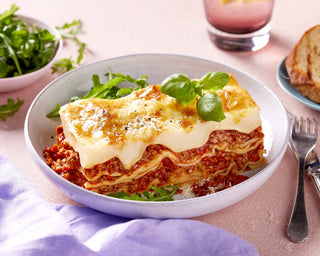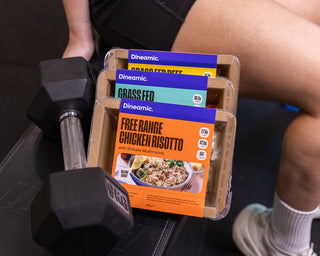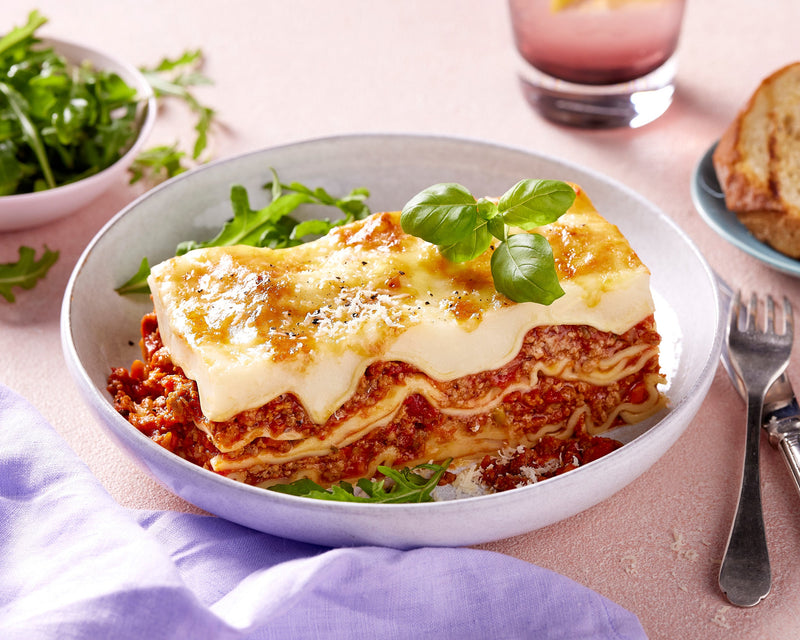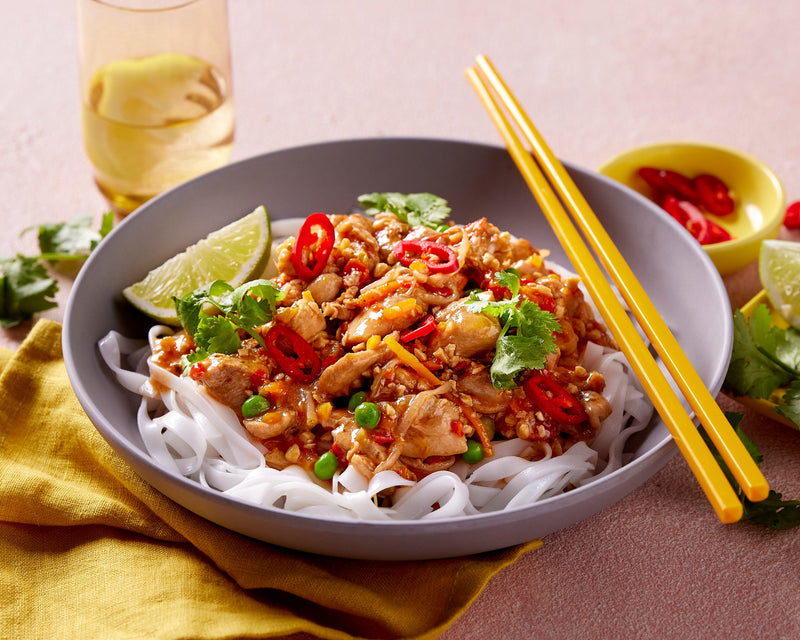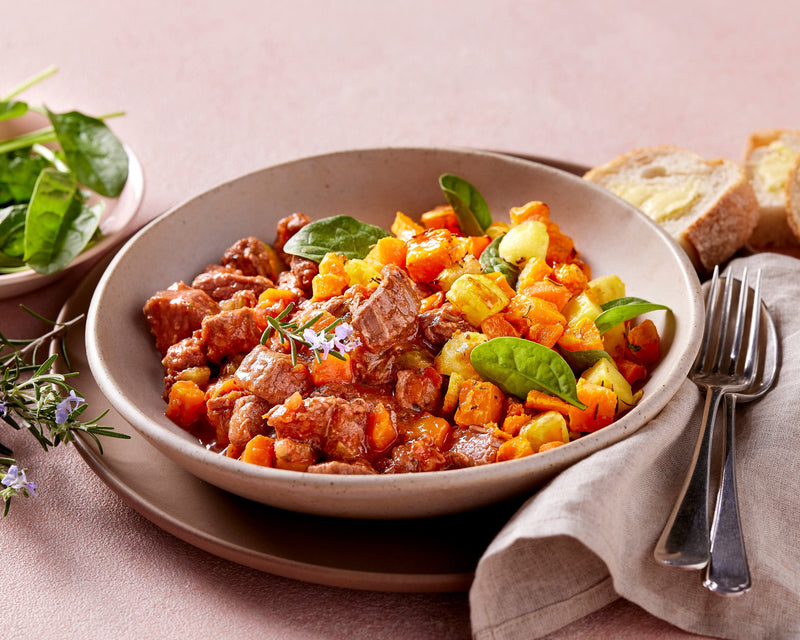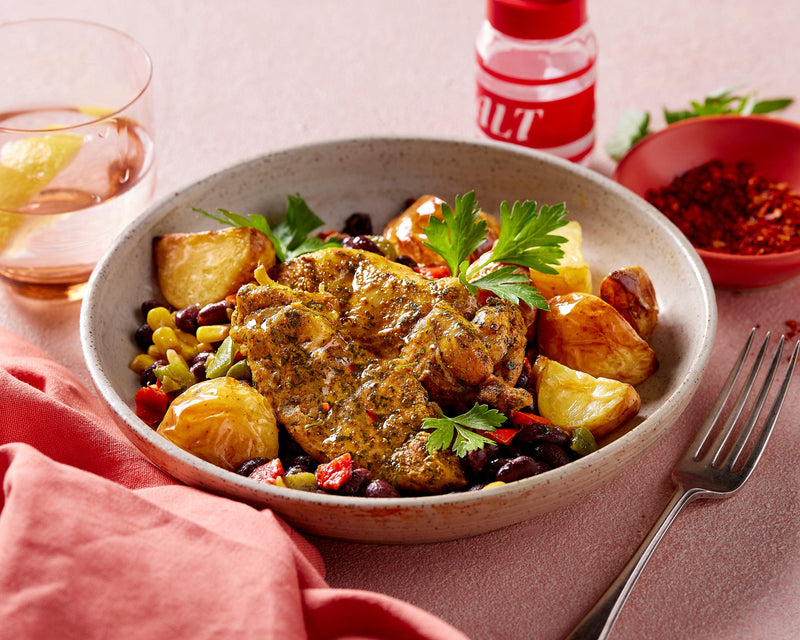
Research has shown that maintaining a vegetarian or plant-based diet has a host of benefits. Vegetarian diets are associated with lower risk of heart disease, lower cholesterol levels, lower blood pressure and lower rates of type 2 diabetes, cancer and other chronic diseases.
But just because you eat vegetarian doesn’t mean you’re going to by default enjoy all the health benefits of a plant-based diet. Sorry to those of you who were already planning on veggie burgers and fries every day for lunch!
Maintaining a vegetarian diet isn’t hard, but it does require a little bit of creativity, planning and education. You’ll need to ensure you’re getting all the key nutrients you need to function best, including protein, iron, zinc, fatty acids, iodine, vitamin D and B-12. For those of you who are used to chucking a steak in a fry pan, whipping up a quick salad and calling it a day, the thought of all that planning and veggie chopping might be enough to turn you off! But trust us, a vegetarian diet can be just as easy, tasty and variety-filled as any carnivorous one.
HOW TO STAY HEALTHY ON A VEGETARIAN DIET
Vegetarians can get all the nutrients they need, but following the diet does require some special planning. The best way to ensure you’re getting the right nutrients is to include foods across the five food groups every day. They are:
- Vegetables and legumes
- Fruits
- Grains and cereals
- Eggs, legumes, tofu, seeds, nuts
- Milk, cheese, yoghurt or some alternatives
You should also make sure you’re regularly reading food labels. Many vegetarian products, such as some faux meat products, are packed full of salt and preservatives. Remember, just because it’s vegetarian, doesn't mean it’s healthy.
Pay special attention to these important nutrients
By restricting your diet to exclude meat or other animal-based products (such as dairy), you may be missing out on some important nutrients. However, it’s easy to maintain a healthy diet by choosing the right alternatives.
Calcium and vitamin D
Calcium plays an important part in maintaining the health of your teeth and bones. Dairy products are high in calcium, but you can also get calcium from dark green vegetables. If you’re going to exclude or limit milk, cheese and yoghurt you can also try:
- Soy drinks with added calcium
- Almonds
- Tahini
- Broccoli, kale and Asian greens like bok choy
Vitamin D is also necessary for bone health. It’s added to some milks, cereals and margarines, so be sure to read the nutritional labels. If you get limited sun exposure (or are enduring a long winter), you may also need to pay special attention to your vitamin D levels.
Vitamin B-12
Vitamin B-12 plays a critical role in red blood cell formation and the function of the brain and nervous system. It is found largely in animal products, so if you’re following a vegetarian (or vegan) diet it can be difficult to ensure you’re getting enough. Try the following:
- Animal foods including eggs, yoghurt, cheese and milk
- Some fortified breakfast cereals and soy products
It’s worthwhile having a conversation with your GP when following any diet. A routine blood test can be useful to identify if you’re lacking B-12 and are struggling to get enough in your diet.
Protein
We’ve all heard someone say ‘I can’t be vegetarian. I need my protein’. Well, it just so turns out you can get all the protein you need from a vegetarian diet. Protein is made up of amino acids that maintain healthy bones, skin, muscles and organs. The key to getting all the protein you need from a vegetarian diet is combination eating. While animal proteins have all nine essential amino acids, plant proteins vary. To get all nine, you need to make sure you’re eating a variety of plant-based foods. Tofu is the only exception - it contains all nine essential amino acids. To maintain a healthy vegetarian diet, include the following:
- Legumes including beans, lentils and chickpeas
- Seeds including sesame, chia, pumpkin and sunflower
- Grains including buckwheat, quinoa, barley, oats and wheat
- Tofu
- Tempeh
- Nuts (with the exception of coconut)
Iron and zinc
Iron is a crucial part of blood production. Zinc is also an important part of the body’s immune system. Both iron and zinc are not as easily absorbed from plant sources, so we need to eat more of the foods containing these nutrients when following a vegetarian diet. Include these as part of your diet:
- Dried beans, lentils, chickpeas, whole-grain products, cereals
- Vegetables including kale, spinach, broccoli and peas
- Firm tofu and tempeh
- Nuts, specifically almonds and cashews
COMMON PITFALLS OF A VEGETARIAN DIET
Many people begin following a vegetarian diet and are shocked when they realise they actually begin putting weight on. This often happens because there may be an uptake in eating foods containing high amounts of fat, salt and sugar.
Choose unsaturated oils and spreads
Unsaturated fats like olive oil are healthier substitutes to saturated fats like butter, lard and ghee. A number of vegetarian products are marketed as healthy, yet they’ll contain large amounts of saturated fat. Always check labels and don’t fall for marketing gimmicks!
Be careful of foods high in fat, salt and sugar
It may be tempting to consume a large amount of processed foods when following a vegetarian diet. However, these foods are often high in salt, fat and sugar. Snacks like chocolate, potato chips, biscuits and pastries should be eaten in small amounts as part of a healthy and balanced diet.
Now you’re across all the nutritional tips for maintaining a healthy vegetarian diet. Feeling confident? Try our meal plan below!
DINEAMIC'S 7-DAY VEGETARIAN MEAL PLAN
DAY 1
Breakfast
Cherry tomato and basil omelette (½ cup of cherry tomatoes, small handful of fresh basil, 2 tbsp olive oil and 2 eggs)
Snack
1 Dineamic cashew & honey power ball (healthy snack with cashews, honey, dates, coconut, rolled oats, coconut oil, chia seed, spices).
Lunch
Veggie sandwich (2 slices whole grain bread topped with 2 tbsp hummus, small handful of spinach, half a small cucumber, 1 small tomato, 2 tsp of feta and a few kalamata olives)
Dinner
Dineamic Middle Eastern Vegetable Tagine with Turmeric Couscous (aromatic dish with capsicum, zucchini, sweet potato, eggplant, cauliflower and pumpkin)
DAY 2
Breakfast
Berry smoothie (blend 1 cup frozen strawberries or mixed berries, half a banana, half a cup of low-fat yoghurt & half a cup of low-fat cows milk or alternative e.g. oat, almond or soy milk)
Snack
50g of avocado with 3 wholewheat crackers
Lunch
Avocado on toast with fetta (2 slices of toast, rubbed with garlic, fresh avocado slices, a scattering of fetta and a squeeze of lemon)
Dinner
Veggie burger (1 veggie pattie, 1 whole wheat bun, small handful lettuce or spinach, 2 slices of tomato, ¼ avocado, mustard)
DAY 3
Breakfast
Oats with blueberries (½ cup oats, 1 cup water or low-fat cows milk or alternative e.g. oat, almond or soy milk, ½ cup blueberries)
Snack
3 wholegrain crackers with approx. 40g of cheese
Lunch
Dineamic Minestrone & quinoa soup (traditional Italian soup with a twist, packed with tomatoes, root vegetables, legumes and quinoa)
Dinner
Pasta with bocconcini, capers and cherry tomatoes (75g whole grain pasta, 6 cherry tomatoes, 1 tbsp olive oil, ½ tbsp red wine vinegar, 75g bocconcini)
DAY 4
Breakfast
Toast and soft-boiled eggs (2 slices of whole-wheat toast, 2 soft boiled eggs)
Snack
1 tub of yoghurt with 1 tbsp of mixed seeds (e..g. sesame, chia, pumpkin and sunflower)
Lunch
Mediterranean bowl (1 small cucumber, ½ cup cherry tomatoes, small handful of parsley, 8 kalamata olives, ⅓ cup chickpeas, 1 tbsp tzatziki, 2 tbsp hummus)
Dinner
Dineamic Lentil & Mushroom Bolognese with Spaghetti (nutrient-rich sauce made from eggplant, tomato and mushroom, along with brown lentils for a protein hit)
DAY 5
Breakfast
Green smoothie (blend 2 cups spinach, half a banana, 1 cup fruit of your choice & 1.5 cups of low-fat cows milk or alternative e.g. oat, almond or soy milk)
Snack
1 cup of chopped carrots and sugar snap peas with 2 tbsp of hummus for dipping
Lunch
Dineamic Broccoli, Spinach & Kale Soup (broccoli, Spinach and Kale soup packed full of delicious green goodness high in antioxidants, vitamins, minerals and fibre)
Dinner
Falafel pita (3 falafels, tahini sauce, ½ tomato, 1 small cucumber, ¼ red onion, small handful parsley)
DAY 6
Breakfast
Breakfast burrito (1 scrambled egg, half cup of black beans on a whole wheat tortilla, hot sauce optional)
Snack
1 cup of blueberries and approx. 30 g of raw, unsalted almonds
Lunch
Salad with edamame and beetroot (2 cups mixed greens, 1 cup shelled edamame, ½ beetroot, 1 tbsp coriander, 2 tbsp olive oil, 2 tbsp apple cider vinegar)
Dinner
Dineamic Creamy Wild Mushroom & Green Bean Ragu with Gnocchi (five kinds of mushroom mixed with herbs and cream, finished with green beans and served with pillow-like gnocchi)
DAY 7
Breakfast
Oats with raspberries (½ cup oats, 1 cup water or low-fat cows milk or alternative e.g. oat, almond or soy milk, ½ cup raspberries)
Snack
1 banana and approx. 30g of raw, unsalted cashew nuts
Lunch
Smashed avo on toast (1 avocado, 2 slices wholewheat bread, 1 pinch chilli flakes, squeeze of lemon juice, dash of olive oil, pinch of salt)
Dinner
Dineamic Indian Vegetable Curry with Basmati Rice (veggie and flavour-packed option for those who love a little bit of spice)
TOO BUSY TO COOK?
We hope our vegetarian meal plan inspires you to incorporate more plant-based meals into your life. If you find yourself with less time than you’d like to prepare something at home, then consider substituting some of our suggestions for one of our healthy vegetarian Dineamic meals.
Shop the full range of vegetarian Dineamic meals here.


